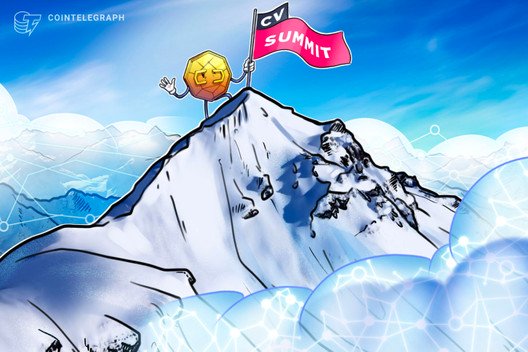The Supreme Court of India has wrapped up the first three days in a hearing on a landmark case brought against the country’s central bank against its ban on banks’ dealings with cryptocurrency-related businesses.
From Jan. 14 through 16, proceedings were focused on arguments presented by Ashim Sood, the legal counsel for the the Internet & Mobile Association of India (IAMAI).
IAMAI is a not-for-profit industry body whose mandate is to appeal to governments on behalf of internet industry consumers, shareholders and investors. Members include Yahoo! India, Apple, eBay, Unocoin and Etsy.
On the heels of both public and industry-led petitions, the IAMAI is levelling a case against RBI’s controversial imposition of a blanket ban on banks’ dealings with crypto businesses back in April 2018, which came into effect in July of that year.
The ban has taken a heavy toll on the local industry, leading major crypto exchanges such as WazirX to overhaul their business models so as to avoid in-house crypto-fiat conversion; other platforms, like Coindelta, have been forced to terminate their services altogether.
This article draws on the extensive live reporting of Indian crypto regulatory news and analysis platform Crypto Kanoon (CK) via Twitter and private correspondence with CK founders Kashif Raza and Mahmood Darwish. Embedded quotations are drawn from CK’s live summary of the court proceedings, and may therefore not be verbatim.
Jan. 14
Sood’s preliminary presentation detailed the effects of RBI’s ban thus far and gave a brief overview on the nature of cryptocurrencies, as well as outlining the potential for distributed ledger technology to enhance data integrity and throughput and efficiency in financial services.
Already in this first presentation, Sood argued that cryptocurrencies should not be classified as currencies, as they can oscillate between serving as a commodity or store of value and as a medium of exchange.
On the last day of the hearing, Sood and the Judge would revisit this point, the latter proposing that in its function as a medium of exchange, cryptocurrency falls under the central bank’s regulatory purview, and, moreover, that it has no utility as a commodity. To this Sood responded that no individual is obliged to pay in cryptocurrency (as legal tender). He used the analogy of a casino to illustrate his point:
“Some people would find value in it and some people would exchange it. It is a technology which should be given a free play. Casino chips are useful to the people who are inside the casino […] When I come out of [a] casino, its use ceases to exist but then some people may exchange it and it holds a value for the interested people. So likewise there is no obligation to use VCs [virtual currencies] as medium of exchange.”
Jan. 15
The second day of the hearing kicked off with Sood’s take of the global context and the judgement of other governments, in which he emphasized that the majority do not recognize cryptocurrency as a form of legal tender.
He then addressed two milestones in the history of cryptocurrency legislation in India: a draft bill that could lead to a blanket prohibition on cryptocurrency use per se, recommended to the Indian government in July 2019, and the RBI banking ban circular from April 2018, which forms the heart of the IAMAI representation.
Tackling the circular, Sood argued that RBI has overstepped its bounds as a regulator, straying into areas that should strictly fall under the regulatory purview of the Securities and Exchange Board of India (SEBI).
The central bank’s focus on concerns regarding volatility and investment risks are, he argued, the remit of SEBI, not the central bank.
The central bank has no power to regulate how a commodity is traded, he said, and its reference to consumer interest — mirroring similar statements by SEBI — is “arbitrary.”
Sood further argued that it is incumbent upon the government and regulators to gather and conduct their own material to analyze in order to support and justify action & intervention. This, he claimed, RBI failed to do before deciding to take action:
“Opinion cannot be formed on imaginary grounds. There must be active application of mind.”
At several points in the hearing, Sood went on to cite evidence that ostensibly points to the fact that SEBI, RBI and the government have relied on third-party analyses of the sector, rather than their own studies.
Referencing conflicting statements from the RBI on the interaction between cryptocurrency use and payments systems, Sood noted that there have been no findings that indicate that payments systems are adversely impacted by the use of cryptocurrencies. RBI has, moreover, contended that it cannot regulate the cryptocurrency sector as it is not itself a payment system, Sood claimed.
At the close of the second day, the counsel argued that the central bank is not authorized to devise a form of prohibition where there is no law to support it:
“The crux of the judgement is that when [the] Legislature doesn’t find a reason to stop/prohibit any economic activity, then the authority doesn’t have power to devise a new form to prohibit such economic activity. Such prohibition violates my right to freedom of trade.”
Jan. 16
Day three opened with Sood’s argument that prior legal activities may only be restricted by a specific policy. In connection with this, where there are deemed to be risks it is strictly the role of parliament, not an administrative authority like RBI, to identify those risks before deliberating on possible intervention.
He honed in on an apparent contradiction in RBI’s stance, arguing that while no international jurisdiction has concluded that it is impossible to regulate crypto, RBI has decided it is impossible and so has moved to ban it.
Picking up on whether RBI’s actions amount to a restriction or an effective ban, Sood argued that while RBI may contend that it is trying to ring-fence the sector, legislation must be evaluated on the basis of its impact. The infringement of rights can be a direct or indirect effect of a given law, he said.
Moreover, Sood argued, a doctrine of proportionality must be applied to any action, asking the judge to consider whether:
“RBI is clouded with the factors which are outside its domain. Whether it is invoking the risks with which it has no connection with being a sectoral regulator.”
The counsel argued that specific areas of concern such as capital outflows and cross-border transactions should be tackled directly, and that restricting the use of cryptocurrencies, in lieu of regulating them, only loosens the authorities’ grip on tracking them and intervening where desired.
As regards money laundering and terrorism financing, Sood noted that countries globally are availing themselves of cybersecurity requirements, licensing rules, capital requirements and other measures to regulate entities in the crypto sector under existing laws.
He pointed to the existence of the Financial Action Task Force (FATF) guidelines, which have provided a basis for the actions of other countries worldwide.
Rather than imposing a ban, cryptocurrencies should, therefore, be regulated like other technologies, which can be alternatively beneficial or risky. When it comes to such concerns — notably anonymity and the facilitation of illicit activities — the burden should not be on the exchanges to regulate on behalf of regulators.
In an argument that drew on many of these contentions, Sood said that where the state’s reluctance to devise regulation does not therefore confer on it the right to simply ban an activity.
A further state clampdown?
As the Court proceeds to hear the rest of the proceedings in the RBI case, the legal and regulatory climate in India remains uncertain.
As Sood noted in his presentation, in fall 2019 the Indian government opted to delay the introduction of a draft bill on a potential cryptocurrency ban to parliament in the 2019 winter session.
The bill — entitled “Banning of Cryptocurrency & Regulation of Official Digital Currencies” — reportedly intends not only to impose a complete ban on the use of crypto in India but also to establish the foundations for a state-backed “Digital Rupee” issued by the Reserve Bank of India.









